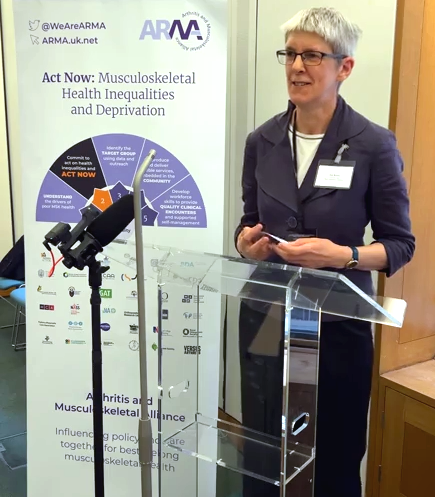 by Sue Brown, CEO ARMA
by Sue Brown, CEO ARMA
It was fantastic to see the launch in December of a new GIRFT programme to support reduction in community MSK waiting times. A funded programme of activity on MSK to work with 17 integrated care systems (ICSs) with the highest waiting lists for elective community MSK services. The focus is to reduce waiting times for a community MSK appointment; to improve access to MSK treatment and support people back to work.
January saw the launch of the elective care recovery plan, focused on getting us back to meeting the target of 92% of waits for planned hospital treatment being no more than 18 weeks. The plan aims to reach this by March 2029. The target has not been met since 2015 and the figure currently stands at 58% so aiming to reach this by March 2029 is still fairly ambitious.
This is good news for all those waiting for planned essential care, including the thousands waiting for vital orthopaedic surgery and rheumatology appointments. I was also pleased to see that the plan includes a focus on patient experience, with a recognition that patients need good information during their waits, assuring them that their referral has been received, information about what will happen next and communications during their wait.
However, as the Kings Fund pointed out in their response to the plan, hospital treatment should not be seen as the only metric of how well the NHS is working.
17 ICBs are receiving funding to address community MSK waits. What of the other 25? Will this drive to focus on essential planned hospital care mean essential community care takes second place?
And what of the welcome Government aim to shift from treatment to prevention? How will we make the necessary funding shift to enable this if our biggest measure of NHS performance continues to be waits for hospital care?
People with MSK conditions need radical and urgent action to address the difficulties in accessing high quality, timely care. They need it in all 42 ICBs. They need it across the board, not a focus solely on one part of the system or another. The millions living with MSK conditions need a comprehensive strategy to address the whole of MSK services. Progressing this can’t wait until 2029.
